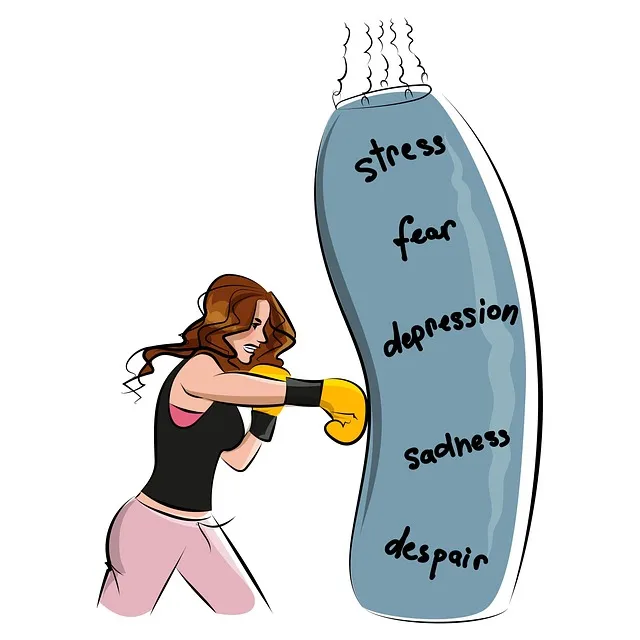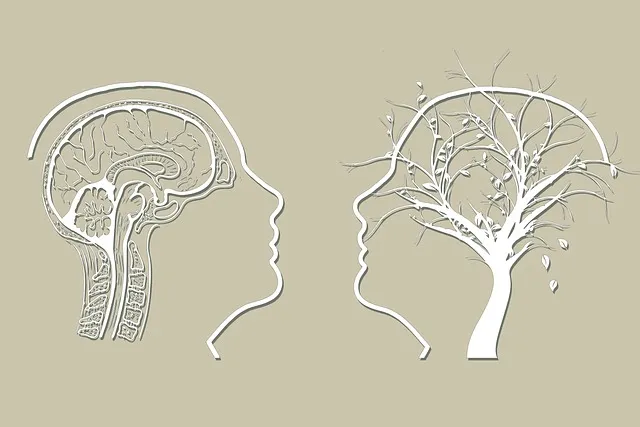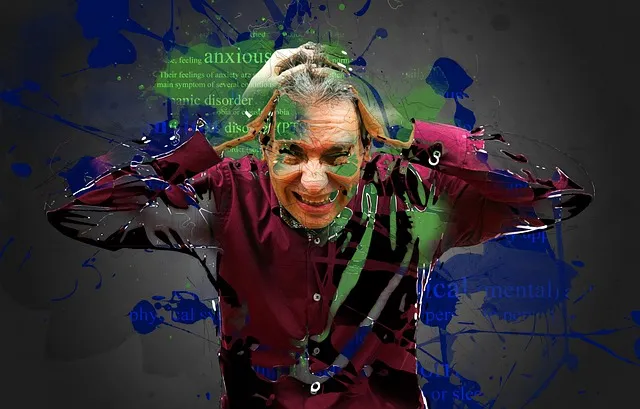Lone Tree Kaiser mental health classes offer unique, tailored stress management workshops that empower individuals with effective coping strategies. Through open discussions, mindfulness practices, and interactive activities, facilitators guide participants to identify stress triggers and develop personal mental wellness coaching programs. These evidence-based techniques enhance emotional resilience, promote self-esteem improvement, and foster a safe, supportive community, enabling attendees to manage stress proactively in their daily lives. Lone Tree Kaiser's commitment to continuous refinement, based on participant feedback and risk assessment, ensures these workshops remain relevant and beneficial for diverse mental health needs.
Stress management workshops are a powerful tool for improving well-being, especially in communities like Lone Tree Kaiser. This article guides workshop facilitators through essential steps, from understanding stress and its impact to designing engaging curricula and creating safe, supportive environments. We explore effective interactive techniques, offer tips tailored for Lone Tree Kaiser mental health classes, and provide methods for measuring success and gathering valuable feedback.
- Understanding Stress and Its Impact: An Overview for Workshop Facilitators
- Designing an Engaging Workshop Curriculum for Effective Stress Management
- Creating a Safe and Supportive Environment: Tips for Lone Tree Kaiser Mental Health Classes
- Interactive Techniques and Activities to Enhance Stress Reduction
- Measuring Success and Feedback: Assessing the Effectiveness of Your Workshops
Understanding Stress and Its Impact: An Overview for Workshop Facilitators

Stress is a universal human experience, but its impact on individuals and organizations can vary greatly. Workshop facilitators play a vital role in guiding participants to understand stress on a deeper level. This involves recognizing that stress is not merely a response to demanding situations but a complex interplay of psychological, emotional, and physiological factors. By fostering open discussions around these aspects, facilitators can help attendees identify personal triggers and the unique ways stress manifests in their lives.
At Lone Tree Kaiser mental health classes, the focus often shifts towards mental wellness coaching programs development as an effective strategy. Facilitators are trained to teach communication strategies that empower individuals to manage stress proactively. This includes techniques for emotional regulation, such as mindfulness practices and cognitive reframing, which can significantly enhance one’s ability to cope with challenging situations. Understanding these mechanisms is key to helping participants navigate their stress levels and overall mental wellness.
Designing an Engaging Workshop Curriculum for Effective Stress Management

When designing a stress management workshop, the goal is to create an engaging and interactive curriculum that effectively addresses participants’ mental health needs. Lone Tree Kaiser mental health classes excel by incorporating diverse techniques tailored to individual preferences. For instance, starting with icebreakers and group discussions fosters a sense of community and shared experience. This sets a comforting tone, encouraging open communication about stress triggers and coping mechanisms.
The workshop curriculum should then weave in practical strategies for stress reduction, such as mindfulness exercises, breathing techniques, and progressive muscle relaxation. Incorporating these into Lone Tree Kaiser mental health classes ensures participants leave with tangible tools to navigate their daily lives. Additionally, integrating topics like emotional healing processes and self-esteem improvement through interactive activities and case studies can enhance overall mental wellness coaching programs development.
Creating a Safe and Supportive Environment: Tips for Lone Tree Kaiser Mental Health Classes

Creating a safe and supportive environment is paramount for effective stress management workshops, especially in settings like Lone Tree Kaiser mental health classes. To foster such an atmosphere, facilitators should prioritize cultural sensitivity in mental healthcare practice, ensuring every participant feels seen, heard, and respected. This involves understanding and accommodating diverse backgrounds, beliefs, and experiences. Incorporating mindfulness meditation exercises tailored to different preferences can enhance inclusivity and engagement, allowing individuals to connect with their inner calm in a way that feels authentic to them.
Additionally, facilitators should encourage open communication and active participation. Using accessible language and avoiding jargon helps ensure everyone understands the material. Creating small group discussions or breakout sessions allows participants to share their experiences and learn from one another, building a sense of community. By integrating these strategies, Lone Tree Kaiser mental health classes can create an environment that promotes mental wellness, where individuals feel empowered to manage stress effectively in their daily lives.
Interactive Techniques and Activities to Enhance Stress Reduction

Lone Tree Kaiser mental health classes offer a unique blend of interactive techniques and activities designed to enhance stress reduction. These workshops go beyond traditional lecture-style sessions, incorporating engaging exercises that foster active participation. For instance, mindfulness meditation practices help individuals cultivate a sense of calm and presence in the moment, while group discussions facilitate the sharing of experiences and perspectives, fostering a supportive community.
The Mind Over Matter Principles form the core of these sessions, empowering attendees with effective stress management strategies. Additionally, Conflict Resolution Techniques and Crisis Intervention Guidance are seamlessly integrated, providing practical tools for navigating challenging situations. Through role-playing scenarios and collaborative problem-solving activities, participants gain confidence in handling stressful events and conflicts constructively, ultimately leading to improved overall well-being.
Measuring Success and Feedback: Assessing the Effectiveness of Your Workshops

Measuring success is a vital component of any workshop organization, especially when addressing sensitive topics like mental health. At Lone Tree Kaiser, we understand that evaluating the effectiveness of our mental health classes goes beyond attendance figures. It involves collecting qualitative and quantitative data to assess participant satisfaction and the tangible impact on their well-being. This process helps us refine our workshops, ensuring they remain relevant and beneficial.
Feedback is a powerful tool for improvement. We encourage open communication from participants through surveys and one-on-one discussions. By gauging the success of our programs, we can tailor Mental Wellness Coaching Programs Development to address emerging needs, including stigma reduction efforts. A comprehensive Risk Assessment for Mental Health Professionals guides our approach, ensuring that our workshops not only educate but also foster a supportive environment for all individuals seeking to enhance their mental health and resilience.
Stress management workshops, such as those offered by Lone Tree Kaiser mental health classes, can significantly impact individuals’ well-being. By combining educational content with interactive activities, facilitators can create engaging curricula that equip participants with effective stress reduction strategies. A supportive environment, tailored techniques, and robust feedback mechanisms are key to ensuring these workshops achieve their goals. With the right approach, these sessions become valuable resources for enhancing mental health and overall resilience.






